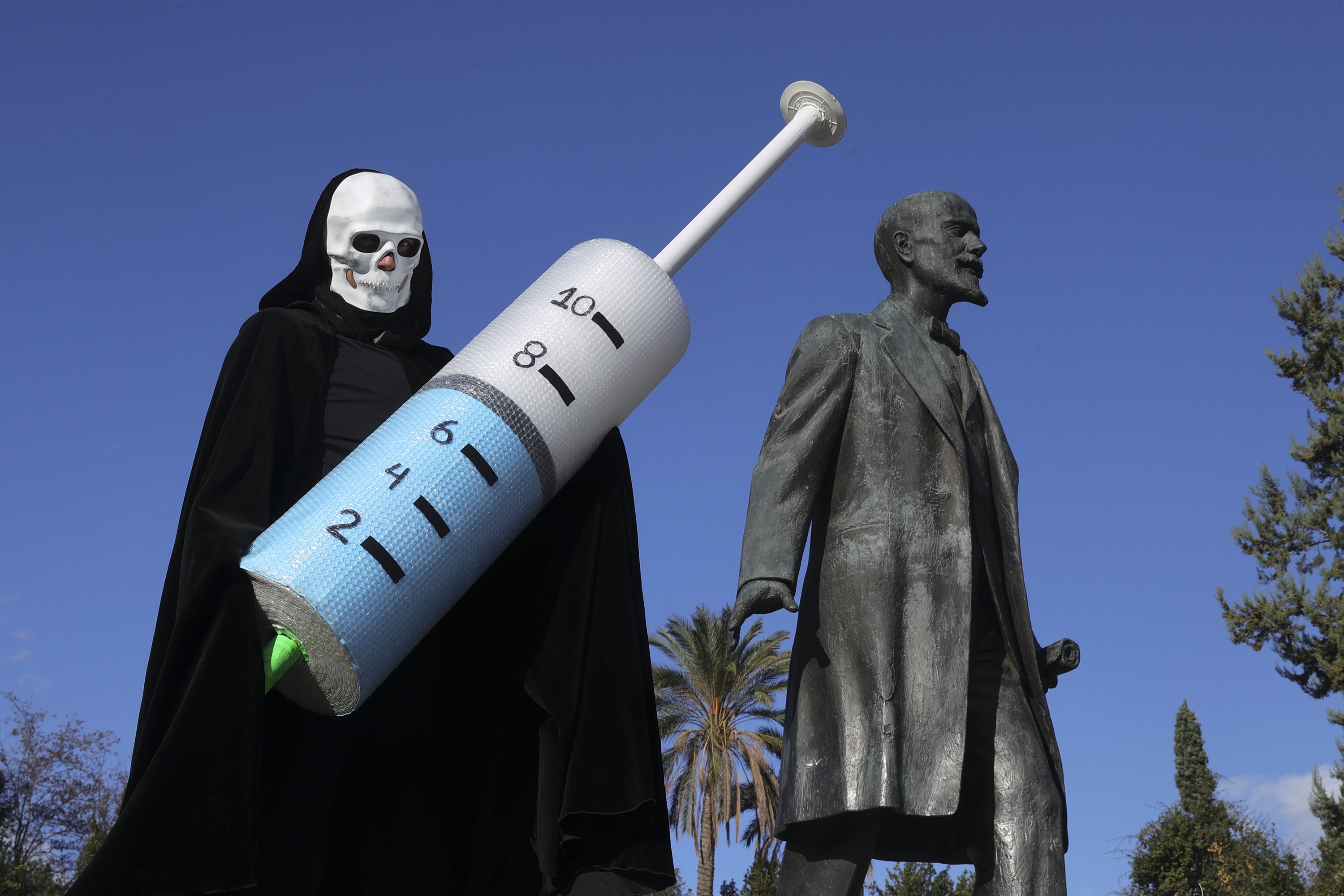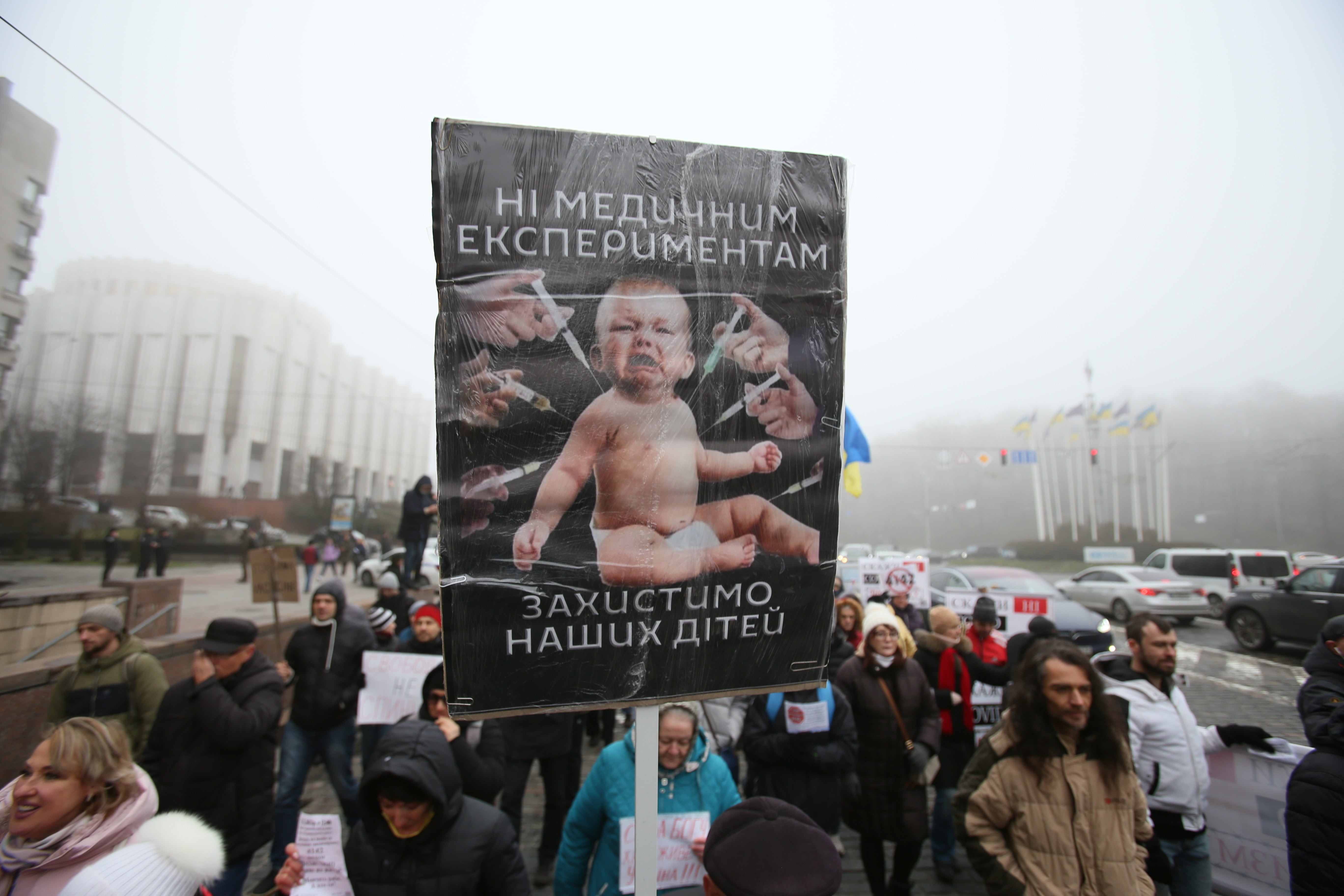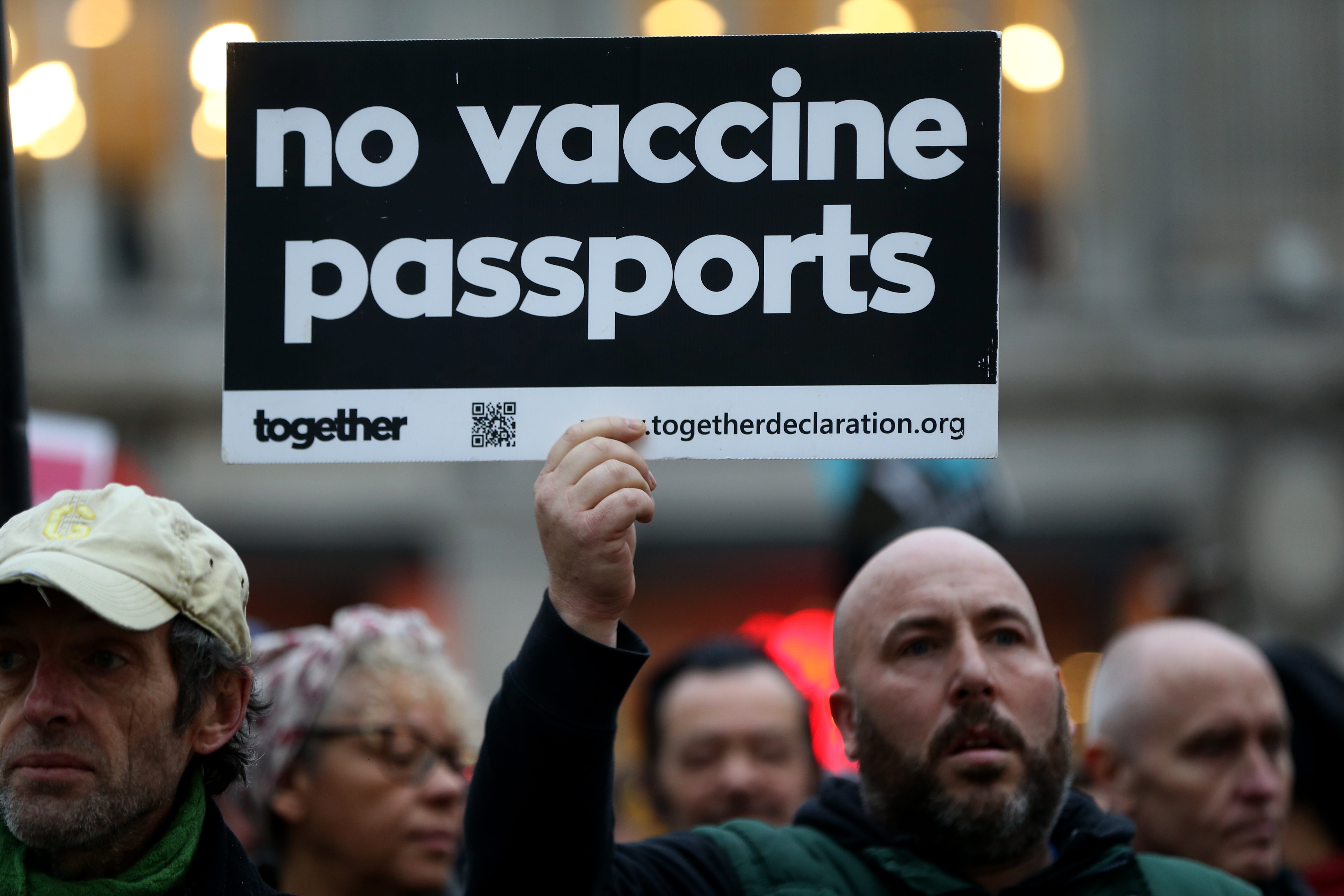How mandatory Covid jabs could fuel radicalisation of anti-vaxxers
Vaccine mandates risk enabling far-right extremists across Europe to attract followers from the anti-vax movement and intelligence officials are on high alert, reports Ahmed Aboudouh


This year saw the rise of the “pandemic fatigue” for people across Europe, despite successful efforts by many governments to vaccinate their citizens and reduce hospitalisations and deaths caused by coronavirus.
However, officials in several countries struggled to contain a different type of threat that emerged throughout 2021: the radicalisation of Covid deniers and the so-called anti-vax movement.
Protesters repeatedly took to the streets in multiple cities across countries including but not limited to France, the Netherlands, Austria, Slovenia, and Croatia to oppose lockdowns, Covid passes and mandatory vaccines.
Strict measures that many consider draconian and unjustified have stirred anger while rising number of Covid cases and growing pressure on health systems have provoked fear and uncertainty across Europe. Together, these factors have fuelled public distrust in government over responses to the pandemic in several countries.
“Some people are vaccine-hesitant, scared and misinformed, but especially distrustful,” said Andrej Kirbiš, associate professor of sociology at the University of Maribor in Slovenia.
“Many of those are already excluded from society in terms of being economically disadvantaged, part of a racial or ethnic minority, or being excluded from the state’s healthcare and social care provision,” he told The Independent.
“Effective communication is just as crucial as the measures themselves, as these, even if inadvertently, often dramatically lower people’s quality of life and infringe on their democratic rights.”
To add insult to injury, many governments across Europe were criticised for failing to effectively communicate lockdown restrictions to the public, giving space for misinformation and conspiracy theories to thrive.

In Slovenia, for example, state measures have been inconsistent – attracting public scorn on social media.
This month, the government banned serving food and drinks at pubs and restaurants and new year fairs, except for one food item – roasted chestnuts.
The head of the Slovenian medical task force, an infectious disease specialist, explained the reasoning behind the decision by saying: “We usually eat chestnuts while walking and throw the husks away on the ground. This is completely different than with mulled wine when we usually stop at a stall.”
But these measures, discussions about mandatory vaccinations, and poor communication strategies gave rise to unfounded charges on the streets and social media about politicians being “dictators on the march” and perverse claims that vaccines were introduced to poison the population as part of the “great reset” conspiracy.
Many protesters in the UK, the Netherlands and Austria try to portray their fables as alternative explanations about the effectiveness of the vaccines without any evidence to support their claims. They always relate their discussions to democratic freedoms.
Throughout 2021, governments seemed unable to develop counter-messaging or devise strategies that would win over the sceptics.
What’s more, public frustration at widely unpunished rule-breaking gave anti-lockdown and far-right activists ammunition to use people’s grievances at inequality and unfairness to advance their conspiracy narratives.
As the Omicron variant rips through the continent and several countries mull making jabs compulsory, as Austria will do from 1 February, authorities and experts alike say there is a danger that vaccine mandates could add fuel to the anti-vax fire.
In a way, Covid anti-vaccine sentiments have become a channel for far-right groups
German intelligence agencies recently warned of greater radicalisation of anti-vaxxers if countries push ahead with vaccine mandates. Four men and a woman were arrested in the eastern German region of Saxony this month on suspicion of planning to assassinate the state’s prime minister Michael Kretschmer, who has pushed for mandatory jabs and hard lockdowns.
“Everybody seems to dislike mandatory vaccination, but decision-makers and experts shrug their shoulders as if they say: ‘It is not my fault that we must go down this road’,” Maria Hofmarcher-Holzhacker, founder of HealthSystemIntelligence, a Vienna-based consultancy, told The Independent.
Germany has been considering plans to make the vaccine mandatory for all adults from February next year, while Greece will fine people aged 60 and over who refused to get jabbed. Meanwhile in Italy, all healthcare workers, school staff, police and military personnel must now be vaccinated.
“Anti-vaccine protesters come from all branches of society,” Ms Hofmarcher-Holzhacker said. “The government’s inability to confess that they are insecure about the end of the pandemic and the emergence of conspiracy fettered by organised radical-right protesters created a high level of mistrust.”
This month, anti-vaxxers organised a string of massive weekend protests against mandatory vaccination and home confinement orders after Austria became the first EU country to make vaccines compulsory.
Activists held signs with messages ranging from “No to vaccine fascism” to “I’m not a neo-Nazi or a hooligan”, while another urged the government to “Control the borders, not your people”. The Austrian government ended lockdown for the jabbed on 12 December, but restrictions still remain for those who are unvaccinated.
Analysts say using social and economic exclusion as a sanction risks further alienating and perhaps radicalising anti-vaxxers.
“Tackling their social exclusion could build trust and motivate them to get the jab,” Professor Kirbiš said. “It is crucial that the first group, the excluded group, is not pushed by government policies into the second anti-vaxxer group.”

Intelligence agencies across Europe have reportedly been closely monitoring the ideological and structural evolution as well as the cross-border reach of anti-vaxxer and anti-lockdown activists throughout 2021. They are also said to be examining the convergence of the anti-vax movement and far-right political extremism.
Sociology researchers believe that social media is helping turn what started as a locally organised anti-vaccine movement into an international wave bringing its proponents into contact with far-right groups across Europe.
Last month at one rally in Vienna, the leader of Austria’s far-right Freedom Party (FPÖ), Herbert Kickl, a vaccine sceptic, had to address the crowd virtually because he was in quarantine after contracting Covid.
It was also reported that extreme-right figures such as leading neo-Nazi and Holocaust denier Gottfried Küssel and Martin Sellner, head of the Identitarian Movement Austria, attended the same gathering.
“Not all participants of these protests are under state surveillance, but there are radical and possibly violent extremists among them,” Ms Hofmarcher-Holzhacker said.
Both groups, according to researchers, have a common cause, united by a belief in a range of conspiracy theories as well as anti-institutional and anti-government sentiment.
But it could also be the beginning of a vicious cycle where far-right political parties find fertile soil to recruit the anti-vaxxers and stoke their frustration for their own political gains, experts have warned.
In particular, concerns are rising that far-right extremists could exploit the anti-vaxxers’ ability to attract followers from broader social backgrounds and expose them to extreme political ideology.
“In a way, Covid-19 anti-vaccine sentiments have become a channel for far-right groups,” Prof Kirbiš said
“This is very worrisome, especially in times of global health, economic and social crises. A global Covid-19 pandemic may thus not only have health but social and political consequences for years to come.”






Join our commenting forum
Join thought-provoking conversations, follow other Independent readers and see their replies
Comments